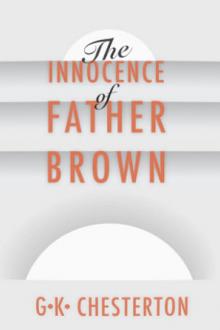Genre Religion. Page - 11

closely resemble that of a refined product of a coarse idea, and the only method of deciding between degeneration and evolution would be the examination, if possible, of intermediate and remote ancestors. The evidence brought forward by believers in the Wisdom is of this kind. They allege: that the Founders of religions, judged by the records of their teachings, were far above the level of average humanity; that the Scriptures of religions contain moral precepts, sublime ideals, poetical aspirations, profound philosophical statements, which are not even approached in beauty and elevation by later writings in the same religions--that is, that the old is higher than the new, instead of the new being higher than the old; that no case can be shown of the refining and improving process alleged to be the source of current religions, whereas many cases of degeneracy from pure teachings can be adduced; that even among savages, if their religions be carefully studied, many traces of lofty ideas can be found, ideas whi

rances, bondage to works, and the fruition and seed of works.
The Soul of the Master, the Lord, is of the same nature as the soul in us; but we still bear the burden of many evils, we are in bondage through our former works, we are under the dominance of sorrow. The Soul of the Master is free from sin and servitude and sorrow.
25. In the Master is the perfect seed of Omniscience.
The Soul of the Master is in essence one with the Oversoul, and therefore partaker of the Oversoul's all-wisdom and all-power. All spiritual attainment rests on this, and is possible because the soul and the Oversoul are One.
26. He is the Teacher of all who have gone before, since he is not limited by Time.
From the beginning, the Oversoul has been the Teacher of all souls, which, by their entrance into the Oversoul, by realizing their oneness with the Oversoul, have inherited the kingdom of the Light. For the Oversoul is before Time, and Time, father of all else, is one of His children.
27.

imself familiar with it. If he were studying only the body, and desired to understand its activities, he would have to classify its tissues at far greater length and with far more minuteness than I am using here. He would have to learn the differences between muscular, nervous, glandular, bony, cartilaginous, epithelial, connective, tissues, and all their varieties; and if he rebelled, in his ignorance, against such an elaborate division, it would be explained to him that only by such an analysis of the different components of the body can the varied and complicated phenomena of life-activity be understood. One kind of tissue is wanted for support, another for movement, another for secretion, another for absorption, and so on; and if each kind does not have its own distinctive name, dire confusion and misunderstanding must result, and physical functions remain unintelligible. In the long run time is gained, as well as clearness, by learning a few necessary technical terms, and as clearness is above all things

, though it were by bringing the whole to nothing. But as still, after all, it seemed to me more tending to the glory of God, to establish and prosper the Orphan-House, I could then ask Him heartily, to send applications. I enjoyed now a peaceful state of heart concerning the subject, and was also more assured than ever that God would establish it. The very next day, February 4, the first application was made, and since then 42 more have been made."
"JUST FOR TO-DAY."
Later on, when there were nearly 100 persons to be maintained, and the funds were reduced to about £20, Mr. Müller writes:--
"July 22 [1838].--This evening I was walking in our little garden, meditating on Heb. xiii. 8, "Jesus Christ the same yesterday, and to-day, and for ever." Whilst meditating on His unchangeable love, power, wisdom, &c.--and turning all, as I went on, into prayer respecting myself; and whilst applying likewise His unchangeable love, and power and wisdom, &c., both to

ome. We need to be happy in this wonderland without once being merely comfortable. It is THIS achievement of my creed that I shall chiefly pursue in these pages.
But I have a peculiar reason for mentioning the man in a yacht, who discovered England. For I am that man in a yacht. I discovered England. I do not see how this book can avoid being egotistical; and I do not quite see (to tell the truth) how it can avoid being dull. Dulness will, however, free me from the charge which I most lament; the charge of being flippant. Mere light sophistry is the thing that I happen to despise most of all things, and it is perhaps a wholesome fact that this is the thing of which I am generally accused. I know nothing so contemptible as a mere paradox; a mere ingenious defence of the indefensible. If it were true (as has been said) that Mr. Bernard Shaw lived upon paradox, then he ought to be a mere common millionaire; for a man of his mental activity could invent a sophistry every six minutes. It is as easy as lying

ach expresses eternal and infinite essentiality. Explanation-I say absolutely infinite, not infinite after its kind : for, of a thing infinite only after its kind, infinite attributes may be denied ; but that which is absolutely infinite, contains in its essence whatever expresses reality, and involves no negation.
VII. That thing is called free, which exists solely by the necessity of its own nature, and of which the action is determined by itself alone. On the other hand, that thing is necessary, or rather constrained, which is determined by something external to itself to a fixed and definite method of existence or action.
VIII. By eternity, I mean existence itself, in so far as it is conceived necessarily to follow solely from the definition of that which is eternal. Explanation-Existence of this kind is conceived as an eternal truth, like the essence of a thing, and, therefore, cannot be explained by means of continuance or time, though continuance may be conceived without a beginning or en

cordingly: (1) The Strong one used 225 times in theOld Testament; (2) The Strong one as an object of worship; (3) TheStrong one who is faithful and, therefore, to be trusted and obeyed.This last is a plural term and is used 2300 times in the OldTestament. It is the name used when God said. "Let us make man" and"God created man in his own image," etc., Gen. 1:26-27. It was by thisname that God the Trinity covenanted for the good of man before manwas created.
2. LORD. Small capitals in the old version and translated Jehovah inthe in the revised translation. It means: (1) The self-existing onewho reveals himself; (2) God as Redeemer. It was under this name thathe sought man after the fall and clothed him with skins. Gen. 3:9-17;(3) God who makesand keeps his covenants. It is used more than 100times in connection with the covenants, as in Jer. 31:31-34 where hepromises a new covenant.
3. Lord. Small letters except the L and always denotes God as Masterin his relation to us as servants. The

that faith is likewise about propositions; so that its object is something complex.
I answer that, The thing known is in the knower according to the mode of the knower. Now the mode proper to the human intellect is to know the truth by synthesis and analysis, as stated in the First Part (Q. 85, A. 5). Hence things that are simple in themselves, are known by the intellect with a certain amount of complexity, just as on the other hand, the Divine intellect knows, without any complexity, things that are complex in themselves.
Accordingly the object of faith may be considered in two ways. First, as regards the thing itself which is believed, and thus the object of faith is something simple, namely the thing itself about which we have faith. Secondly, on the part of the believer, and in this respect the object of faith is something complex by way of a proposition.
Hence in the past both opinions have been held with a certain amount of truth.
Reply Obj. 1: This argument consider

